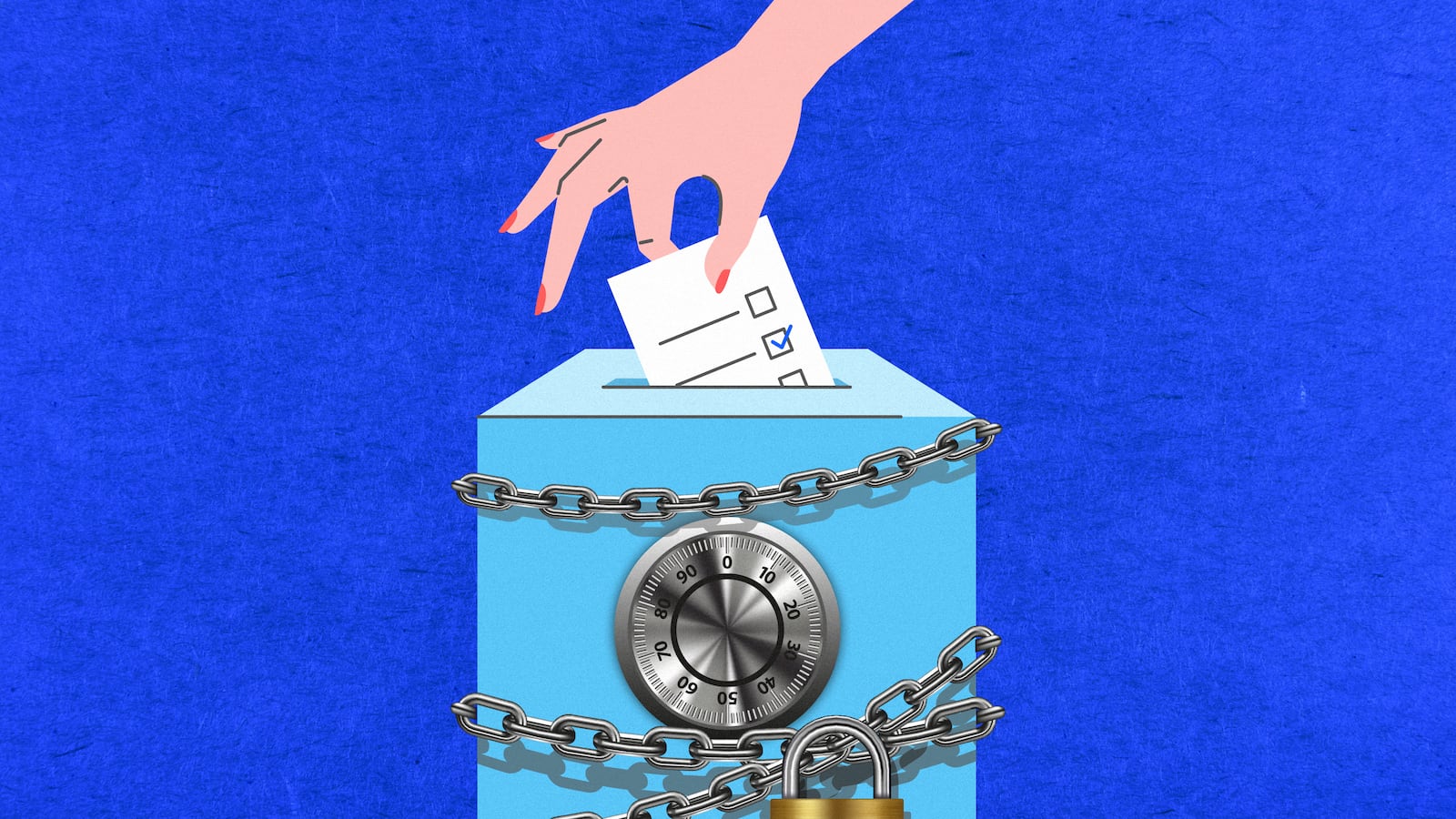Recent Ballot box fires in Oregon, Washington, and Arizona have stoked election tampering fears as the 2024 presidential election enters its home stretch next week—prompting concerns about the security of early votes cast in battleground states.
Republican presidential nominee Donald Trump has only added fuel to the fire with unfounded claims that the 2020 election he lost was “rigged,” kicking off a similar strategy of denialism this election cycle with unfounded claims that a county in crucial state Pennsylvania is “cheating.”
Some of Trump’s more hardline supporters, who have gathered under the “Dark MAGA” umbrella, also subscribe to a belief that he must retake the White House by any means necessary, even force.
However, despite these actors’ allegations that the democratic process is in disarray, election law experts and officials say voting by mail, via ballot box, or in-person is, mostly, safe.
Counting All the Votes
There are “multiple safeguards” built into the ballot counting process that prevent overcounting or undercounting votes, explained Gowri Ramachandran, the director of elections and security at the nonpartisan Brennan Center for Justice, in an interview with Vox.
In person, ballots are immediately counted and a voter participation log is monitored by independent observers, with post-election audits used to verify the results.
Before reaching voters, ballot counting machines are also subjected to logic and accuracy tests, required by law, to ensure counting efficiency—which dramatically decreases the likelihood of voting systems being “rigged.”
“The count involves so many steps, so many layers of double-checking and supervision, that it would be virtually impossible to fake even a single ballot,” said Michigan election worker Evelyn Smith, an election worker in Michigan, told the Washington Post in 2020.
Where Things Can Get Tricky
However, election certification is where things can go awry; the cause often having nothing to do with ballot counting and more to do with officials refusing to certify election results.
A group of Democrats, supported by Kamala Harris’ camp, sued the Georgia state election board in August alleging newly installed election rules allowing officials to conduct “reasonable inquiry” into results could be exploited by pro-Trump supporters. And that allegation isn’t without merit.
In 2020 election, the Wayne County Michigan Board of Canvassers deadlocked 2–2 from certifying the results because two Republican commissioners refused to declare Biden the winner.
Not to mention when 147 federal Republican lawmakers infamously voted to overturn the 2020 election results on behalf of Trump.
Harris’ deputy campaign manager, Quentin Fulks, told The New York Times that the Georgia lawsuit is a response to Republican efforts “to lay the groundwork to challenge the election results when they lose again in November.”
Help, My Drop Box Was Set on Fire
The Department of Homeland Security issued a warning in September that “some social media users are discussing and encouraging various methods of sabotaging ballot drop boxes and avoiding detection.”
The DHS added that the “potential for targeting” election infrastructure such as ballot boxes and polling stations is high as the population heads to the polls on Election Day.
Ballot boxes are equipped with fire suppressant systems, and outfitted with materials that make them difficult to destroy. Additionally, PBS reported that 92 percent of surveyed local election officials had taken steps to increase security around polling stations and other election infrastructure amid threats of violence.
Many of the ballots inside a drop box set fire by an “incendiary device” in Portland, Oregon, were unaffected. However, a ballot box fire in Vancouver, Washington, left hundreds of ballots damaged.
For any early voter who suspects that their ballot may have been damaged in an attack or lost in the mail, the first step is to contact your city clerk’s office to inquire about your concerns. Additionally, online ballot tracking tools are available for 47 states, like Washington.
If a ballot has indeed been lost or destroyed, the options are to immediately request a replacement or to vote in-person. Deadlines for mail-in ballots vary state-by-state, so it is best to check with your city clerk to make arrangements.
The affected ballot box in Portland has already been replaced, with law enforcement announcing plans to step up patrols of the boxes.
“Voter intimidation or any criminal act to undermine the upcoming election is un-American & will not be tolerated,” wrote Oregon Gov. Tina Kotek in an X post on Monday.
In turn, Washington Gov. Jay Inslee also announced on X Monday that “there will be 24-hour enhanced security around ballot drop-off locations,” with election staff also acting as observers to report suspicious activity.
Battling Disinformation
There are reports of disruptions and incidents every voting cycle, said Jen Easterly, a former Army intelligence officer who directs the Cybersecurity and Infrastructure Security Agency, in a Time magazine interview.
“There could be a distributed denial of service attack on a website, so you can’t see election-night reporting,” said Easterly. “Somebody will forget their key to a polling place, so they could open late. A storm may bring down a power line, so a polling place needs to be moved.”
What’s important are the layers of contingencies put in place by election officials.
“They are prepared to meet the moment and to deal with any disruption,” she added.
Voters must then do their part and and peacefully accept the results of the election, added the Brennen Center’s Ramachandran. She explained that disinformation over the election results remains the greatest threat to the voting process.
“When people hear this kind of disinformation over and over and over again, it does lead to real harmful consequences,” Ramachandran told Vox.








